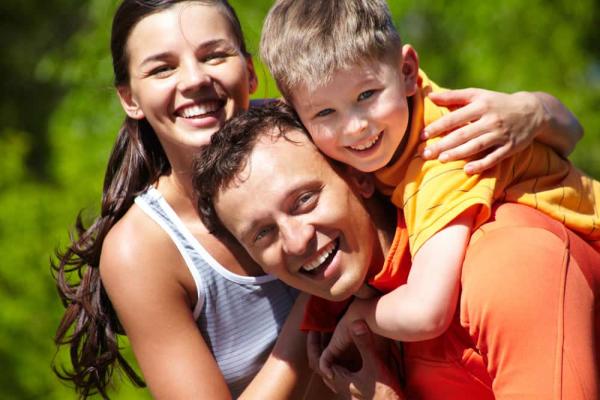
Editor's note: This article was originally published on Becca Whitson's blog. It has been republished here with permission.
Adoption always comes with loss. No matter what the situation, at least some part of the adoption triad (birthparents, child, adoptive parents) has experienced loss. Often all three. Because it's such an emotionally-charged topic, we thought we'd give you some tips on talking with friends and family who are in the adoption process or who have already brought their child home.
1. Don't compare the adoption process to pregnancy
Many prospective adoptive parents have been through years of painful infertility, and hearing that their process is like a pregnancy may be hurtful. Sometimes the differences in adoption and pregnancy/childbirth are glaringly obvious for adoptive parents. I remember sitting in the waiting room during Cy's birth and saying to Matt, "I never thought I'd be in the waiting room waiting for my child to be born." Few of us picture that or the many other moments that come with adoption.
2. Follow the adoptive parents' lead to monitor your excitement
If they are ready for baby/child showers before the placement of the child, go for it. If they want to wait until they feel more confident that it will actually happen, please respect that and wait. I can't tell you how many adoption situations have been presented to us, and we've always been very careful about how much information we've shared because we know things can change very quickly. The same is true for accepting gifts. We just weren't comfortable until the revocation period was over.
3. Don't talk about your own fears unless you're asked
Even then, please make sure you only share informed opinions. Open adoption can be scary for family and friends who aren't educated in the realities and benefits of openness. Asking prospective adoptive parents to give you resources or educate you is a great way to get involved in the process. Please remember that children are precious, regardless of their genes. Comments like, "Adoption is scary "� you just never know what you're gonna get" are insensitive and hurtful. Not to mention the fact that we have no idea what our biological children will be like either, right?
4. Treat the homecoming similarly to if they'd just delivered a child
Offer to bring meals, help with older siblings, etc. For infant adoption, remember that they're just as tired as you were when you brought your biological child home from the hospital. (I've done both). And post-adoption depression is just as real and difficult as post-partum depression.
5. Keep your curiosity to yourself
I know this is difficult. We're naturally curious, especially about situations in which we're inexperienced. However, the story of a child's biological family and the reasons that child was placed for adoption are the child's story. Children should have the freedom to share their stories when they're ready, if they're ready. Also, the financial aspect of their adoption is none of your business. Please don't ask how much it cost, especially in a rude, inaccurate way like, "So how much did he cost?" Adoptive families don't buy babies. They do, however, pay an agency, attorney, and often help with expenses for the birth family.
6. Please, for the love, don't tell an infertile, adoptive mom that she'll probably get pregnant now.
Because that happens all the time! First, adoption doesn't take away the pain of infertility. So your comment may be hurtful. Second, the surprise-pregnancy-immediately-following-adoption thing doesn't actually happen all the time. Adoptions don't magically activate ovulation or erase other factors that cause infertility. (Side note: saying "just relax" doesn't help either).
7. Refrain from comparing an adopted child's struggles to your biological child's
Yes, some issues may seem the same, but issues in an adopted child's life are multi-layered. Saying "all kids do that" or "that's normal" may seem to you like you're normalizing the behavior and encouraging the adoptive parent. However, it may be that you don't understand all of the facets of adoptive families. This is especially true with older child adoption. Their "behavior problems" come with years of history and hurt. Even with infant adoption, families look at issues through different filters than you. When Cy was a preschooler, he'd say very hurtful things in anger. Hearing, "I wish you weren't my mom" is hard for any mom to hear. But because I have children through birth and adoption, I can say with certainty that hearing a comment like that feels very different when it comes from an adopted child.
8. Treat and talk about the adopted children with respect
Don't ask adoptive parents if they have (or will have) children of their own. Our adopted children are ours, and they aren't second-best. Don't assume all non-white children are from other countries. Asking if a family adopted domestically or internationally is completely fine and much better than assuming.
9. Don't treat adoptive parents like saints or saviors
They're neither.
10. Use positive adoption language
For instance, people have often said, "Your boys look so much alike, they could be real brothers." The intent is good, but the delivery is lacking. Our boys are real brothers. They are not biological brothers. And they've never entertained the idea that their genes would keep them from being "real" brothers. We'd like to keep it that way.
What other questions do you have about how to talk with your friends and family involved in adoption?

